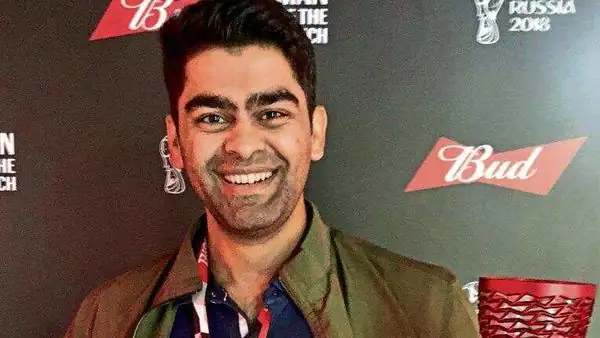Marketing alcohol has always been tough in India, a country with a restrictive regulatory environment, a task that became more challenging as the entire country shut down during the pandemic. But AB InBev, the multinational alcoholic beverages company, was quick to change gears, said Vineet Sharma, its vice-president, marketing, for South Asia. AB InBev introduced brands such as Budweiser, Corona, Hoegaarden and Beck’s Ice in the country. AB InBev started tailoring marketing activities to interest customers who started enjoying drinks at home instead of visiting bars. This included virtual concerts and increased engagement through social media channels, Sharma said in an interview. Edited excerpts:
How has the business changed for AB InBev?
We had a very aggressive growth path, but covid-19 was definitely a kind of dent in our plans. Our focus then shifted to making sure that our brands were still relevant in the lives of people who stopped going out. We had to bring a lot of experiences to people’s homes. One such experience was our two-day music event BudX. We made sure that we created an “in-home” version of BudX.
Are consumers buying more premium liquor?
India continues to witness a strong trend towards premiumization as the market matures, fuelled rapidly by the growing number of urban millennials. With multiple lockdowns and surges of covid-19, there was a strong shift to in-home consumption, with consumers buying more at small intervals. Also, convenience became a key decision driver as people were shifting from bottles to cans—easy to carry, store and drink.
Is in-home liquor consumption here to stay?
With the gradual opening of the country, we see a hybrid version continuing. While people are gradually moving back to on-premise outlets, many consumers continue to use in-home experiences.
With a few states like Chhattisgarh, Odisha, West Bengal and Maharashtra adopting the e-commerce and home delivery model for alcohol, we see a significant opportunity to work with more state governments to unlock these channels within the existing regulatory framework.
Do regulatory challenges come in the way of advertising and marketing in India?
Yes; regulations in India, especially, in the alco-bev space from a trade perspective, are definitely some of the toughest across the world. But we believe that we always follow the line to the tee.
What success metrics do you use for alcohol marketing on social media?
A lot of our major spends are happening on digital media because of the regulations that exist. Digital marketing in India has helped us to be much sharper in our media targeting and knowing exactly who our audiences are.
It’s an evolution of consumer behaviour in India. People demand high standards from the brands they like. Today’s consumer is much more aware, and gone are those days of one-way communication from brands to consumers. Today, it’s a seamless two-way communication and when brands talk to consumers, consumers talk back. That, I think, is great because then you get the real pulse and a real-time voice of the consumer. You don’t have to wait one month for different resources to tell you how your campaign has done.
Consumers also expect brands to have a point of view, and I believe being authentic is the key to such conversations.
Does working with influencers help?
Influencer-led campaigns have become a very integral part of our marketing mix. Back in 2016, when this trend was starting, we invested in spokespersons and “cheerleaders” for our brands. They increase our potential brand awareness because we cannot reach every single person and, even if we do, that will be very costly. From a very cost-effective perspective, influencers definitely help us to increase the potential brand reach.
Do they help you build brand trust as well?
They help us build a lot of credibility and reinforce the brand message. But it’s important that it not be a short-term stint with influencers. Building a long-term relationship, co-curating a lot of campaigns and curating their brand message with them is extremely important. We work with a lot of lifestyle and alco-bev influencers on a long-term basis who help us convert people from not just being brand advocates but also brand loyalists.
Any interesting campaigns coming up?
We are very clear that we want to build our brands here in India. Budweiser, which has been a flagship brand, supports a lot of music and football. Locally, we see the emergence of football, and live sports viewing and with the English Premier League season underway, we will continue to build on our long-standing association.
Are you also focused on India’s favourite sport, cricket?
We do have an upcoming cricket campaign centred around the cricket World Cup.
We have a beer brand called Beck’s. It’s a youth-oriented brand and while we are not too big in sponsorships like a lot of our competitors, we play a tactical role instead—digitally.













